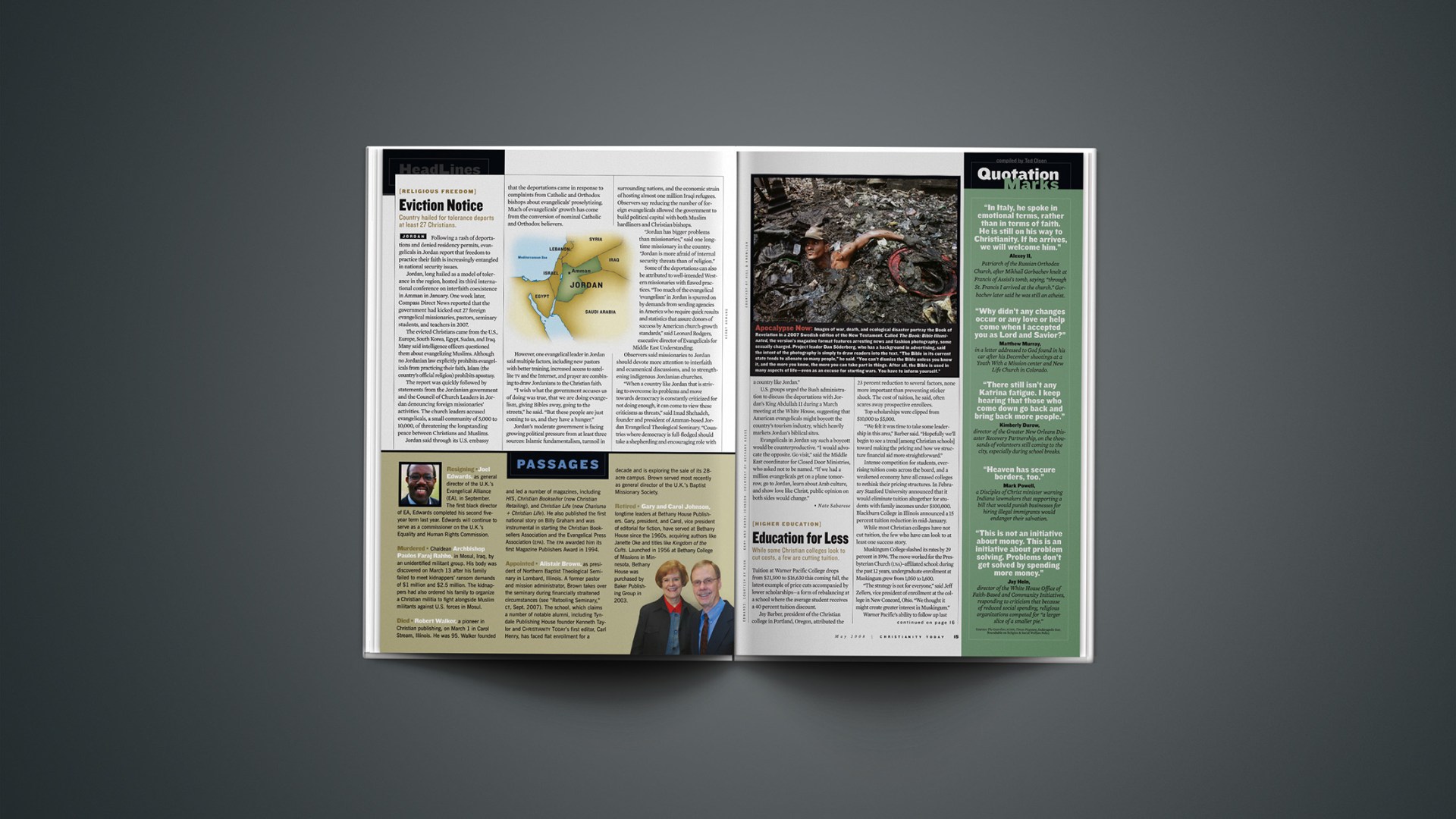Tuition at Warner Pacific College drops from $21,500 to $16,630 this coming fall, the latest example of price cuts accompanied by lower scholarships—a form of rebalancing at a school where the average student receives a 40 percent tuition discount.
Jay Barber, president of the Christian college in Portland, Oregon, attributed the 23 percent reduction to several factors, none more important than preventing sticker shock. The cost of tuition, he said, often scares away prospective enrollees. Top scholarships were clipped from $10,000 to $5,000.
“We felt it was time to take some leadership in this area,” Barber said. “Hopefully we’ll begin to see a trend [among Christian schools] toward making the pricing and howwe structure financial aid more straightforward.”
Intense competition for students, ever-rising tuition costs across the board, and a weakened economy have all caused colleges to rethink their pricing structures. In February Stanford University announced that it would eliminate tuition altogether for students with family incomes under $100,000.
Blackburn College in Illinois announced a 15 percent tuition reduction in mid-January. While most Christian colleges have not cut tuition, the few who have can look to at least one success story.
Muskingum College slashed its rates by 29 percent in 1996. The move worked for the Presbyterian Church (USA)–affiliated school: during the past 12 years, undergraduate enrollment at Muskingum grew from 1,050 to 1,600.
“The strategy is not for everyone,” said Jeff Zellers, vice president of enrollment at the college in New Concord, Ohio. “We thought it might create greater interest in Muskingum.” Warner Pacific’s ability to follow up last year’s 20 percent enrollment hike with a similar jump will depend on public reaction to its lowered costs. Mark Olson, dean of enrollment at Chicago’s North Park University, said that while cutting tuition might seem like an automatic plus, it isn’t when the public’s perception of value correlates to price.
“There’s enormous pressure on schools to control costs,” said Olson, whose employer made headlines by reducing tuition $6,100 three years ago. “At the same time, there’s another school of thought that says people will think we’re good if we charge more money.” This conundrum means colleges are prone to stick with higher prices. But Stanley Clark, provost of Simpson University, a member of the Council for Christian Colleges & Universities (CCCU), pointed out that CCCU schools only charge 75 to 79 percent the average tuition of four-year private schools.
Still, said CCCU president Paul Corts, there is great concern over rising prices, and this “is going to be a significant factor in the short term in holding down prices.”
Copyright © 2008 Christianity Today. Click for reprint information.
Related Elsewhere:
The CCCU offers annual reports on tuition and fees at its member schools.
The Oregonian and Portland Business Journal covered Warner Pacific’s tuition drop.
Stanford’s move waswidelycovered.
Blackburn’s tuition cut was covered in the local paper by Inside Higher Ed.
Inside Higher Ed also reported on the success Muskingum saw after its tuition decrease.
In 2007, senior managing editor Mark Galli pondered “The Cost of Christian Education.”
More on education is available in our full coverage area.










